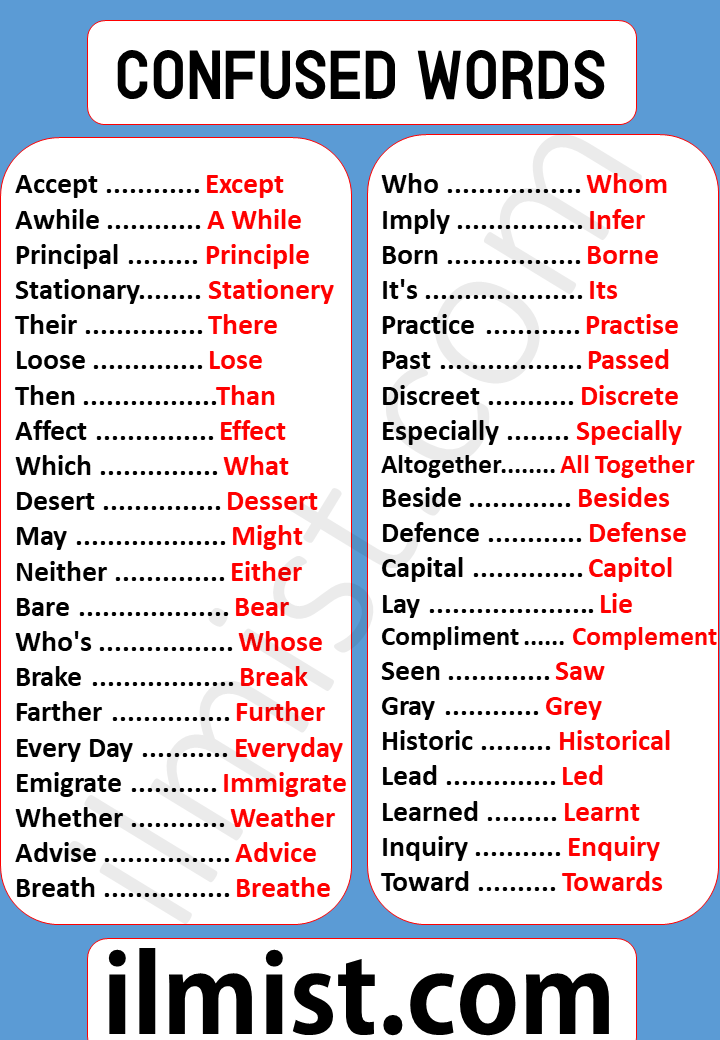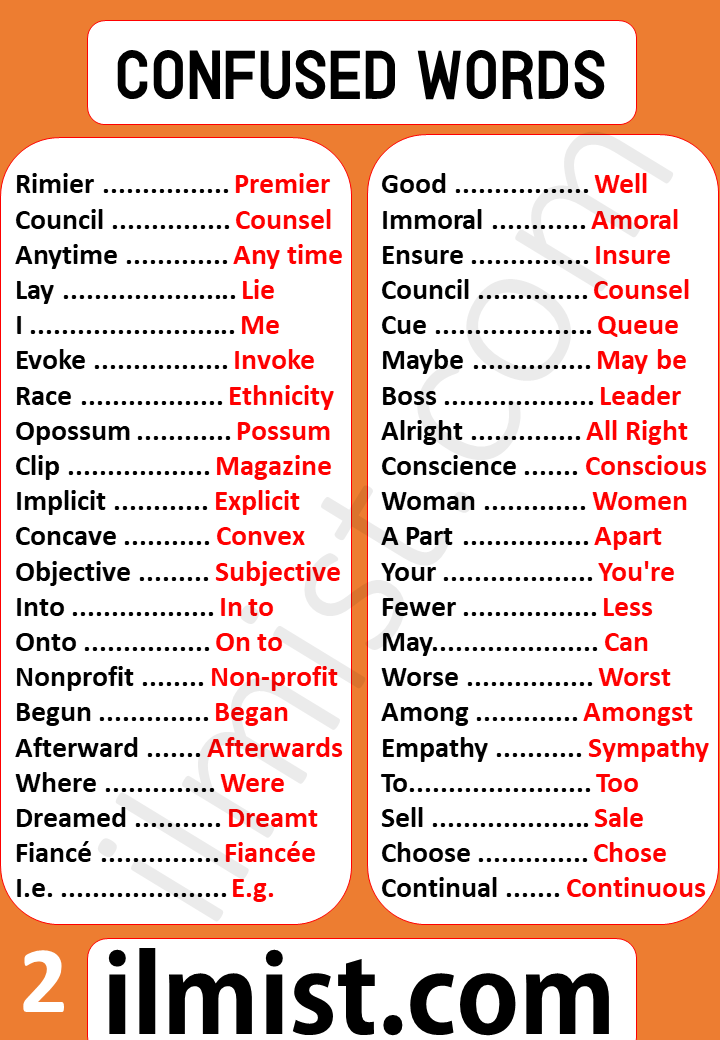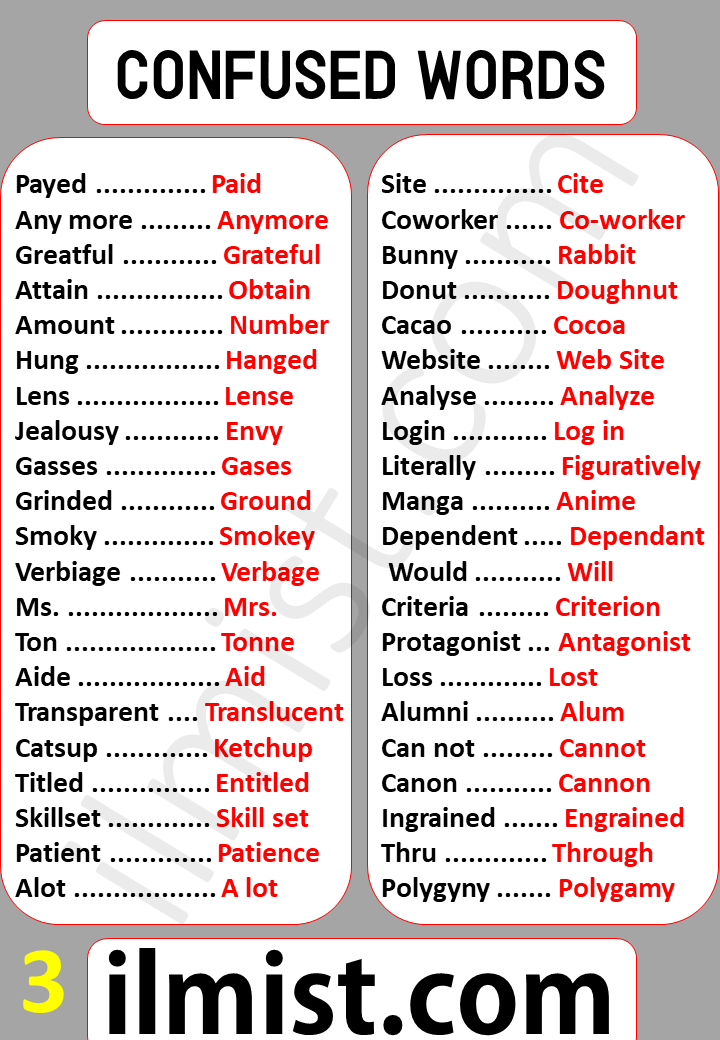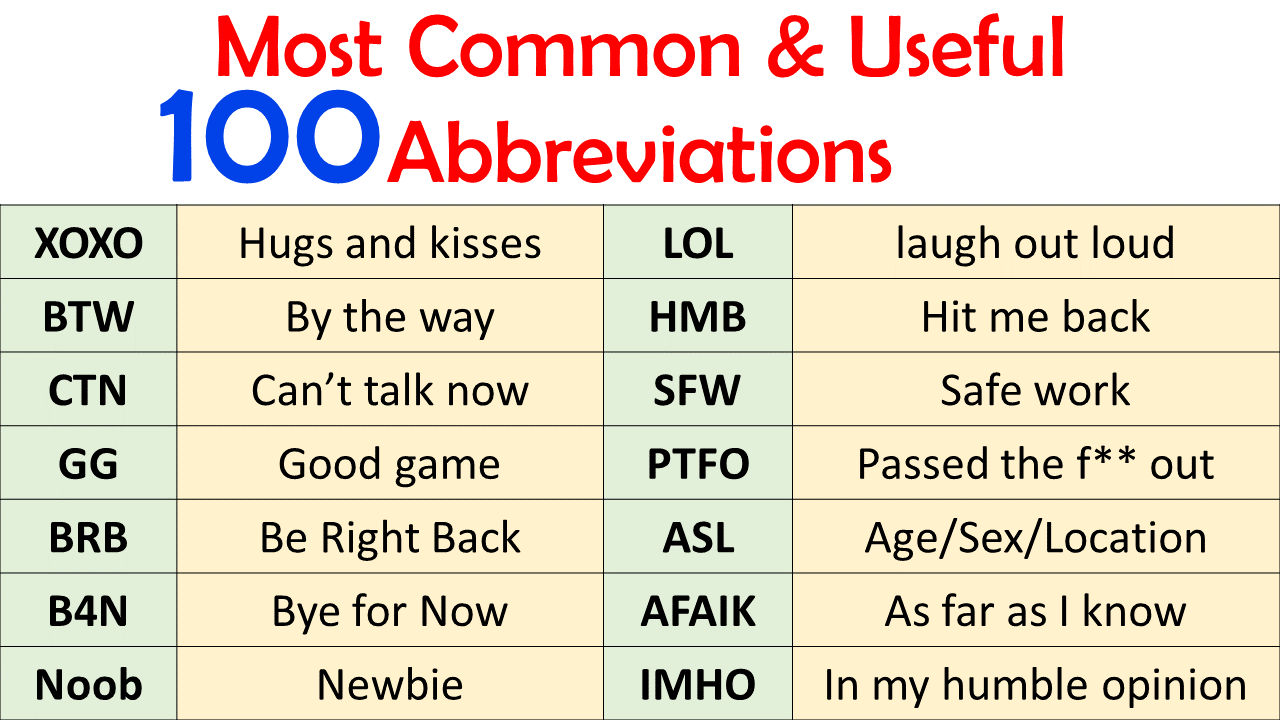In this lesson, We’ll learn about the Most Commonly Confused Words in English | English Vocabulary. We’ll talk about the most misused words with their helpful examples. If you pay some extra attention and constantly practice, commonly misused words won’t be a problem for you anymore.
Commonly Confused Words List
| 1- Lose (verb)
Example:
|
Loose (adjective)
Example:
|
| 2- Farther
Example:
|
Further
Example:
|
| 3- Bear
Example:
|
Bare
Example:
|
| 4- Complement
Example:
|
Compliment
Example:
|
| 5- Affect
Example:
|
Effect
Example:
|
| 6- Advice
Example:
|
Advise
Example:
|
| 7- Resign
Example:
|
Re-sign
Example:
|
| 8- Breath
Example:
|
Breathe
Example:
|
| 9- Capital
Example:
|
Capitol
Example:
|
| 10- Empathy
Example:
|
Sympathy
Example:
|
| 11- Its
Example:
|
It’s
Example:
|
| 12- Principal
Example:
|
Principle
Example:
|
| 13- Toward
Example:
|
Towards
Example:
|
| 14- To
Example:
|
Too
Example:
|
| 15- Stationary
Example:
|
Stationery
Example:
|
Defence VS Defense
Defence is spelling according to British English while the defense is spelling according to American English.
- I’ve never played in a defence position.
- He was the then secretary of Defense.
Assure VS Ensure
Assure means to make it certain to someone that something is true. Ensure means to do all possible things to make sure something happens as required.
- Assure her that her teacher will reward her performance.
- Ensure her teacher rewards her performance.
Alot VS Allot
A lot is a quantifying phrase meaning much of something. Allot means to distribute something
- The baby cries a lot in the morning.
- James was asked to allot the books to the students.
Accept VS Except
Accept means to come to terms with something.
- It was hard for james to accept his failure in exams.
Except means to exclude.
- All the students except James passed their exams.
Accurate VS Precise
Accurate means very exact. Precise means close to very exact.
- The drawing of the building was accurate.
- His precise shooting skills in archery have earned him medals.
Adverse VS Averse
Adverse means something os someone is hostile towards you or a situation. Averse means to lie on the opposite to the majority.
- The adverse weather has forced many people to stay indoors.
- The president’s averse economic solutions have made him unpopular.
All Ready VS Already
All ready is a phrase that means all is set. Already means prior to or before a specified time.
- I was all ready for the exams.
- I was already seated in the hall before James came in.
All VS Every
All is a quantifier meaning each item in a group has something common. Every means each of something.
- All the students wear a blue shirt.
- Every student should bring book to school.
All Ways vs Always
All ways means each item of a group of items. Always means every time.
- The city is receiving visitors all ways.
- The teacher is always on time for his lessons.
Appraise vs Apprise
Appraise means to commed or praise. Apprise means up to date.
- An employer should appraise the ability of his employees.
- We must apprise them of the dangers that may be involved.
Birth vs Berth
Birth means the act of bringing up new life. Berth is a space allocated to ships or cars for parking.
- The birth of Prince James was celebrated all over the world.
- The ship has been at the berth for 6 months awaiting clearance by authorities.
Borrow vs Lend
Borrow means to receive something from someone temporary. Lend means to give or borrow something at a cost.
- I always borrow my books from the school library because it’s cheaper than buying mine.
- The company lends out cars for events such as weddings.
Commonly Confused Words | Infographics






